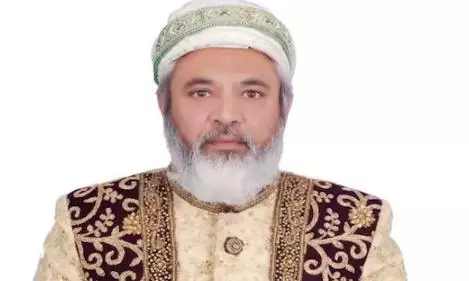Zafar Descendant Seeks UN Intervention to Protect Aurangzeb’s Tomb
Yakub Habeebuddin Tucy urges global action citing threats, legal obligations, and rising hostility over Mughal heritage

Yakub Habeebuddin Tucy, who claims to be a direct descendant of the last Mughal emperor Bahadur Shah Zafar, has written to United Nations Secretary-General António Guterres urging protection for the tomb of Mughal ruler Aurangzeb in Maharashtra’s Chhatrapati Sambhajinagar district.
Tucy, who also identifies himself as the Mutawalli (caretaker) of the Waqf property where the tomb lies in Kuldabad, cited the monument’s legal status and cultural value in his appeal. He pointed out that the tomb is recognised as a "Monument of National Importance" under the Ancient Monuments and Archaeological Sites and Remains Act, 1958, making any unauthorised alteration, destruction, or excavation near it punishable by law.
The letter comes weeks after communal tension erupted in Nagpur on March 17 over calls to remove the tomb. Protesters had clashed with police, with violence reportedly triggered by misinformation about the desecration of a holy book.
Tucy blamed the situation on distorted portrayals of historical figures in films and media, which, he said, fuel public anger and hate campaigns. “These symbolic acts of aggression, such as burning effigies, threaten our shared heritage,” he said.
In his letter, Tucy also invoked international legal obligations, including India’s commitments under the 1972 UNESCO Convention, which mandates the conservation of cultural heritage for future generations.
Calling for immediate attention, Tucy urged the UN Secretary-General to direct the Indian government and the Archaeological Survey of India (ASI) to provide the Aurangzeb tomb with full legal protection, security, and preservation in accordance with both domestic and international heritage laws.

